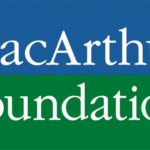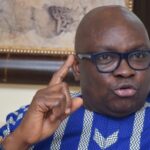The African Director of Mac Arthur Foundation, Dr. Kole Shettima, has stressed the need for media houses to broaden their financial autonomy to guarantee editorial and professional independence.
Shettima, who is also a Chairman of the Governing Board of the Centre for Democracy and Development (CDD), said this on Monday in Abuja at a two-day editorial conference on “Legal and Ethical Issues in Investigative Reporting in Nigeria”, organised by Daily Trust, in collaboration with Centre for Media Law and Development, Daily Trust Foundation and MacArthur Foundation.
According to him, the MacArthur Foundation was delighted to work with media organisations in Nigeria on the critical issues of investigative journalism as the organisation sees it as a core part of its mandate.
“To further deepen investigative journalism in Nigeria, MacArthur Foundation was also sponsoring investigative journalism training in about eight other Nigerian languages, especially as most Nigerians cannot communicate in English. This would also help promote Nigeria’s indigenous languages.
“From the perspective of the MacArthur Foundation, one of the issues is about funding, we know that there is a relationship between editorial independence and financial autonomy and we have been keen on making newspaper organisations independent, mostly in the area of funding. We want to support investigative journalism to ensure it is not commercialized.
“We want to promote autonomy and funding for media organisations involved in investigative reporting, and we want to see how to support Nigeria’s news media to achieve autonomy and funding for these projects without compromising on ethics. So that the media can say what they have to say professionally,” Shettima said.
On his part, the Editor-in-Chief/Chief Executive Officer of Media Trust Limited, publishers of Daily Trust titles, Mallam Mannir Dan-Ali, wonder why the media continue to focus on the centre and the well to do instead of promoting the plight of the down trodden, who needed to be reported for the government to act on their plights.
According to him, he believes in comforting the afflicted and afflicting the comforted.
“Why is it that we are mostly concerned about reporting the Senate President, the Speaker and the governors? Why are we forgetting that our role of comforting the afflicted and afflicting the comforted?
“But you see us mostly afflicting the afflicted and comforting the comforted. What this means is that we are doing the bidding of those in powers and not asking the question on their responsibilities and how they are imparting on the society, this is supposed to be our job,” Dan-Ali said.
He also urged the media to report the plights of people of Zamfara and other place affected by insecurity and other challenges that should have been tackled by the government.
Also, the Chairman, Daily Trust Foundation, Malam Wada Maida has reiterated the foundation’s commitment to enhancing competency in journalism in the country.
He said the foundation has trained over 200 journalists in Nigeria in the art of investigative Journalism and is working towards training more.
He said that about 94 journalists were killed last year worldwide in the cause of doing their jobs, adding that any society that suppresses the voice of truth does not progress.
“Journalists are meant to scrutinize the activities of those in power and ensure that those who operate contrary to the legal framework and policies setting up the agencies of government they oversee are exposed and made to account for their misdeeds,” he said.
He said the training have various outlines that will help Nigerian journalists develop the capacity to practice and compete with their peers in other parts of the world and charged participants to take notes and learn as much as possible and put all they will learn to use.
Presenting the lead paper on “Legal and Regulatory Issues in Investigative Journalism in Nigeria”, renowned lawyer and human rights activists, Femi Falana (SAN) urged journalists to be careful in their dealings so that they can be able to carry out their jobs professionally.
He also urged them to note the risk involved in investigative journalism but that there were landmark judgements that protect them from being victimized by those in authority.
On his part, the Director General, Centre for Media Law and Development, Mr. Charles Odenigbo, said the event was to deepen investigative journalism in the country.
Also, the Acting Chairman, Broadcasting Organisation of Nigeria (BON), Mr. Godfrey Ohuabunwa, insisted that investigative journalism had become critical, especially with the proliferation of social media and citizen journalism.
According to him, “It is unfair that journalists, reporters will be harassed for saying the truth. The media is the only avenue through which the common man can express his views. It is important that we go beyond getting news but doing investigation. Due to technology, almost everyone is now a broadcaster.
“Convergence of technology had made this possible. The challenge, however, is on regulation; how do we regulate citizen journalism, especially with the ills associated with the social media. Regulatory issue is a challenge.
“A woman just wakes up one morning and goes naked on social media. How do you check that? So, regulatory issue is something we should take seriously.”
Also, the Director General, Voice of Nigeria (VON), Mr. Osita Okechukwu, said that the Freedom of Information Act (FoIA) had emerged as a major legislation in the country since the advent of democracy and presented a veritable tool for media organisations to hold people in authority to accountability.
A former Borno State Attorney-General and Senior Partner in the J. K. Gadzama & Associate, Barrister Muhammed Monguno, the Chief Executive of Premium Times, Mr. Dapo Olorunyomi, a former DG of the Nigeria Law School and Vice Chancellor of the Baze University, Prof. Tahir Mamman and Managing Partner and CEO of The Eugenia Abu Media, Ms. Eugenia Abu among others also spoke at the event.

 Join Daily Trust WhatsApp Community For Quick Access To News and Happenings Around You.
Join Daily Trust WhatsApp Community For Quick Access To News and Happenings Around You.


